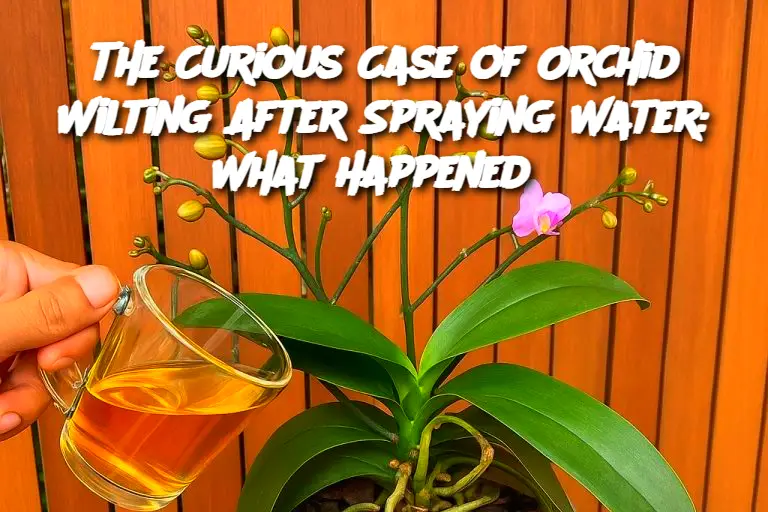ADVERTISEMENT
-
Water Types: Experiment with distilled water, rainwater, or filtered water if tap water causes problems.
-
Spray Alternatives: Instead of spraying, place a humidity tray with water and pebbles near the orchid to increase moisture without direct leaf wetting.
-
Leaf Cleaning: Occasionally wipe leaves with a damp cloth to remove dust without soaking.
FAQ
Q1: Why did my orchid's leaves turn dull green or wilt right after spraying?
A: This can happen due to water quality issues (chlorine, salts), cold water shock, fungal infections triggered by moisture, or overwatering stress.
Q2: Can spraying orchids harm them?
A: Yes, if done incorrectly. Spraying too much water or using poor quality water can damage leaves or roots.
Q3: How often should I spray my orchid?
A: Typically, once or twice a week is enough, but it depends on your environment's humidity and the orchid species.
Q4: Is it better to water orchids from the bottom?
A: Many growers prefer bottom watering (placing the pot in water to soak) to avoid wetting leaves and crown, reducing disease risk.
Q5: What is the best way to prevent orchid leaf damage?
A: Use clean, room-temperature water sparingly, provide good airflow, and avoid direct sunlight on wet leaves.
Final Thoughts
While it may seem strange that spraying water could cause an orchid to wither or lose its green vibrancy immediately, this is usually a sign that the plant is sensitive to certain environmental factors. By understanding the needs of your orchid and carefully managing watering practices, you can avoid these issues and keep your delicate companion flourishing for years to come.
ADVERTISEMENT
